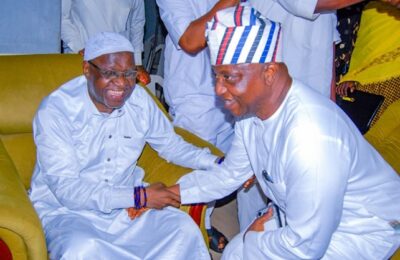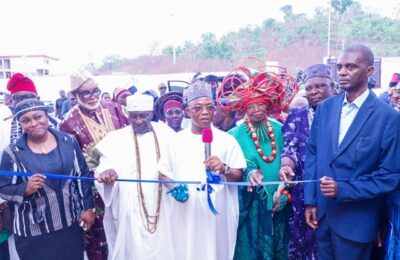By Musa Bakare.
History reserves a special place for leaders who prioritize the long term well being of their nations over the fleeting applause of the moment. In this regard, President Bola Ahmed Tinubu is beginning to echo the leadership ethos of one of the 20th century’s most transformative leaders, Lee Kuan Yew of Singapore.
Since Nigeria’s independence in 1960, successive governments have struggled to lay the enduring structural and economic foundations necessary for national transformation. Many chose comfort over confrontation, palliatives over policy, and politics over principle. It is within this historical context that President Bola Ahmed Tinubu’s administration stands out not for convenience, but for courage.
Like Lee’s Singapore, Nigeria today is at a crossroads. The choice is between continuing the cycle of policy hesitation or embracing hard reforms that may cause discomfort today but create prosperity tomorrow. This parallel is not merely symbolic, it reflects a shared ethos.
Lee once said, “If you want to reach your goals and dreams, you cannot do it without discipline.” President Tinubu’s current efforts at fiscal discipline, infrastructure renewal, and institutional reform are reflections of that same principle.
From the audacious removal of the fuel subsidy to the unification of exchange rates, President Tinubu has made decisions that are essential for long term economic stability. These bold structural adjustments were previously avoided by leaders, despite widespread recognition of their necessity.
President Tinubu administration’s emphasis on prudent economic management, renewed investor confidence, and a commitment to industrial revitalization, especially with the iron and steel development Ministry marks a departure from decades of inertia that have stifled the country’s growth.
Unsurprisingly, such decisive leadership has drawn criticism. True reformers often find themselves at odds with entrenched interests and a public weary from years of disappointment. However, condemnation should not be mistaken for failure. History teaches us that nation building is rarely accompanied by applause. The path to progress is frequently paved with discomfort, skepticism, and resistance.
Leaders who take bold steps often face opposition, especially in a complex and diverse society like Nigeria. A multitude of factors including political, social, and economic contexts shape public perception and reactions to leadership styles.
Nigerians must remind themselves of the fact that leadership transcends the boundaries of a popularity contest; it is a call to act in the best interest of future generations. Those who dare to build what others have failed to even attempt must be prepared to withstand the fiercest opposition.
Ultimately, history does not remember those who played it safe; it honors those who laid the foundation for lasting change. While many Nigerians are supporting and praying for President Tinubu’s approach to solidify the nation’s development, there are detractors who criticize every effort based on considerations that are away from national interest.
As Nigerians brace for the impact of reforms, Lee Kuan Yew’s legacy should remind us that real progress demands courage, and that the most enduring change often begins with the boldness to act.
– Musa Asiru Bakare, Member, Tinubu Support Group (TSG), writes from Lokoja, Kogi state.




